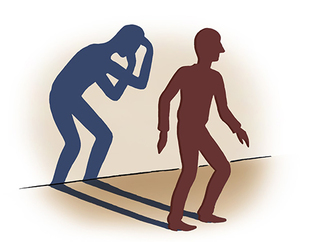
Gregory Nemec
About a third of people who have endured a horrific event suffer from post-traumatic stress disorder, or PTSD. A sound, sight, or smell reminiscent of that long-ago tragedy triggers flashbacks. People avoid situations that may ignite flareups. They can’t sleep. They can’t work.
For years, scientists have sought clues to why some people are plagued with PTSD while others endure the same stress without debilitating repercussions. Now, a Yale study at the VA Connecticut Healthcare System has revealed genetic differences between those who had PTSD and those who didn’t. The results, published in Nature Neuroscience, were gleaned by analyzing 141 brains donated to the VA’s National Posttraumatic Stress Disorder Brain Bank.
“To me, this study is a kind of foundational study for understanding stress on the brain,” says John Krystal ’84MD, one of the lead investigators, director of the Clinical Neurosciences Division at the VA National Center for PTSD, and chair of the Yale Department of Psychiatry.
Scientists separated the brains into three groups: PTSD, depression, or no psychiatric illness. They based postmortem diagnoses on medical records and interviews with family members. Among the many changes in the brains of those with PTSD, scientists found suppression in the activity of two brain genes. More research is needed, but the findings suggest that lower activity of one gene may dampen the brain’s immune response; lower activity of the other may heighten the stress response.
While some in the PTSD group may have experienced depression, there was little overlap between PTSD and major depression—suggesting that depressions with PTSD are distinct disorders. Scientists also detected gene expression differences between brains of men and women with PTSD, possibly shedding light on why the disorder is twice as likely to strike women.
The hope is that these genetic fingerprints will provide a path to novel therapies. “This is just the beginning of a much deeper, more elaborate characterization of PTSD,” says Krystal. “It is a critical stake in the ground.”
 loading
loading